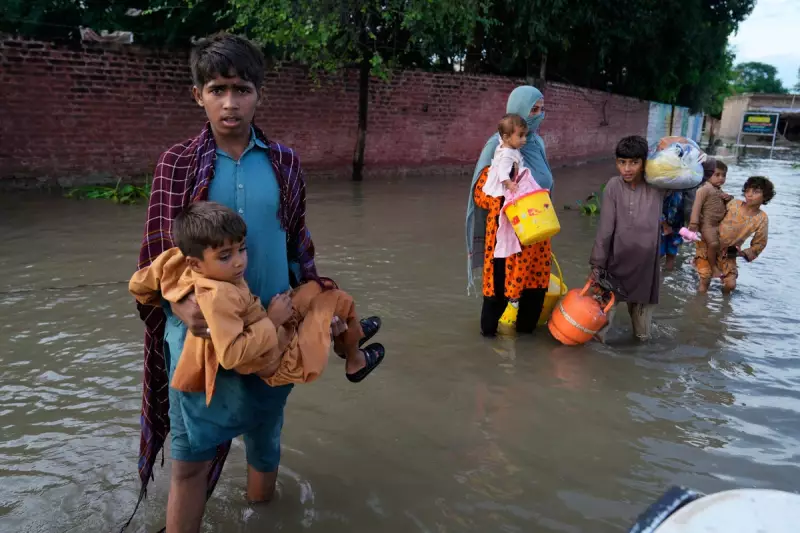
Catastrophic flooding has plunged Pakistan's Punjab province into a state of emergency, forcing tens of thousands of residents to abandon their homes as torrential monsoon rains continue to batter the region.
The provincial disaster management authority has confirmed that more than 50,000 people have been evacuated from affected areas, with many seeking refuge in emergency relief camps established by authorities. The relentless downpour has transformed streets into raging rivers and turned agricultural land into vast lakes.
Rescue Operations Underway
Emergency services are engaged in round-the-clock rescue operations, using boats and helicopters to reach stranded families. The Pakistani military has been deployed to assist in relief efforts, navigating treacherous waters to deliver essential supplies to cut-off communities.
"We are witnessing one of the most severe flooding events in recent years," stated a spokesperson for the Provincial Disaster Management Authority. "Our priority is ensuring the safety of citizens and providing immediate relief to those affected."
Infrastructure in Crisis
The flooding has caused extensive damage to critical infrastructure across the region. Numerous roads and bridges have been washed away, severely hampering rescue and relief efforts. Power outages have been reported in multiple districts, adding to the challenges faced by both residents and emergency responders.
Agricultural communities have been particularly hard hit, with vast swathes of farmland completely submerged. Early estimates suggest significant crop losses, raising concerns about food security in the coming months.
Climate Patterns Worsen
Meteorologists attribute the extreme weather to intensified monsoon patterns, which scientists have linked to broader climate change phenomena. Pakistan has experienced increasingly severe monsoon seasons in recent years, with 2022's devastating floods still fresh in the national memory.
The current flooding serves as a stark reminder of the country's vulnerability to climate-related disasters, despite contributing minimally to global greenhouse gas emissions.
International Response
The international community is monitoring the situation closely, with several organisations offering assistance to Pakistani authorities. The scale of the disaster is still being assessed, but early indications suggest the need for substantial humanitarian aid in the coming weeks.
Local charities and community organisations have mobilised relief efforts, collecting donations and essential supplies for those displaced by the flooding.





